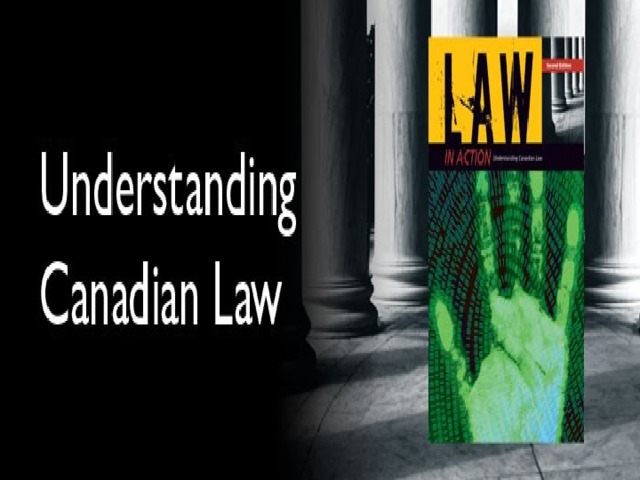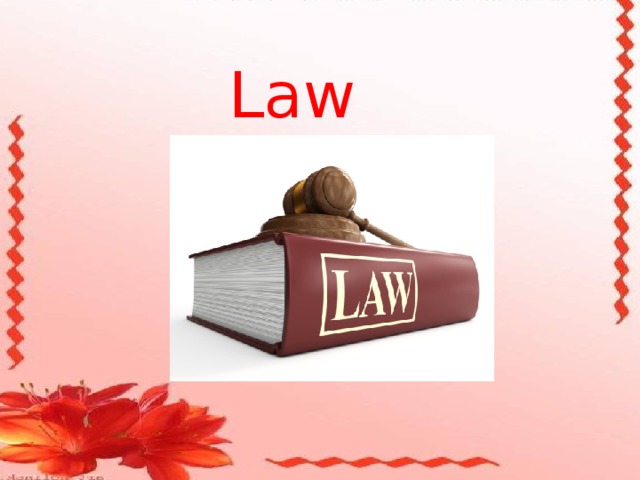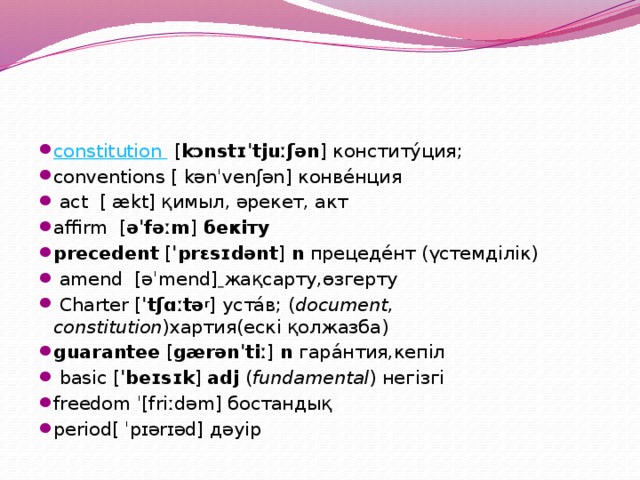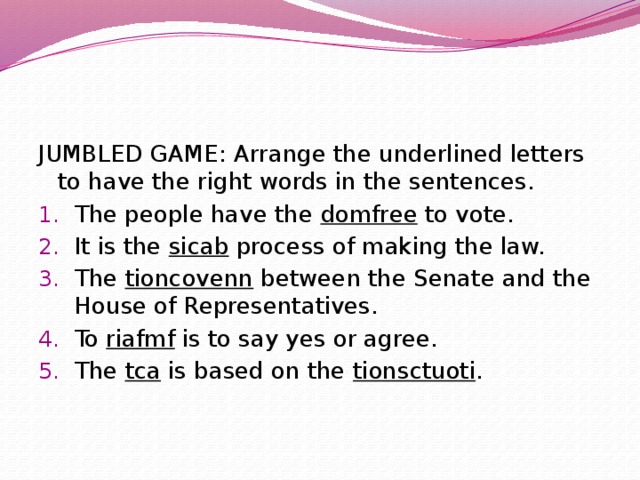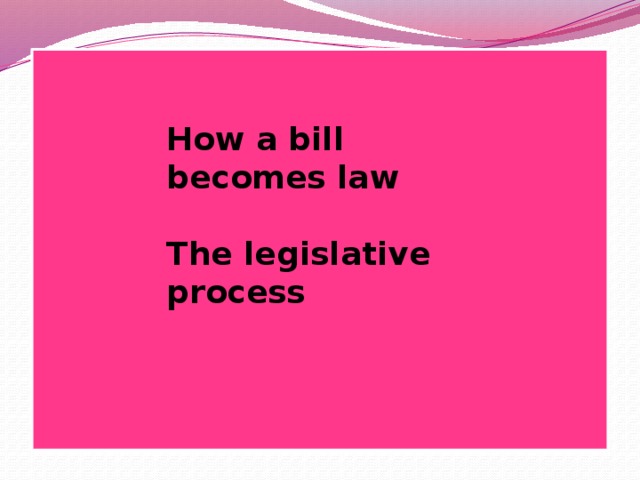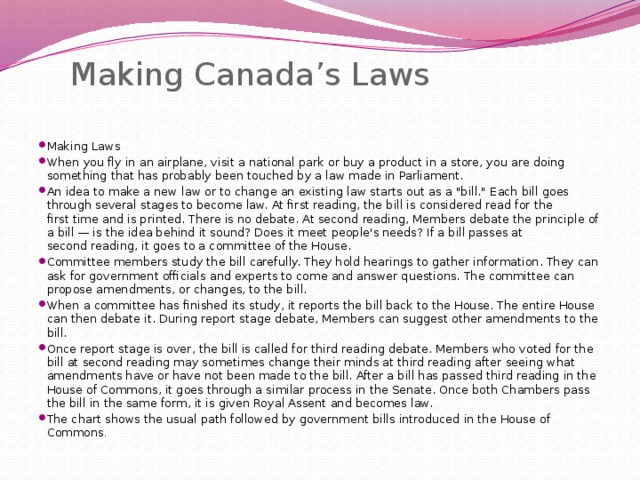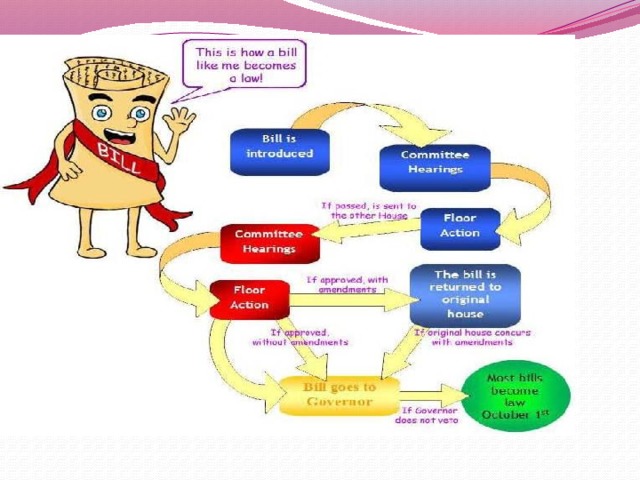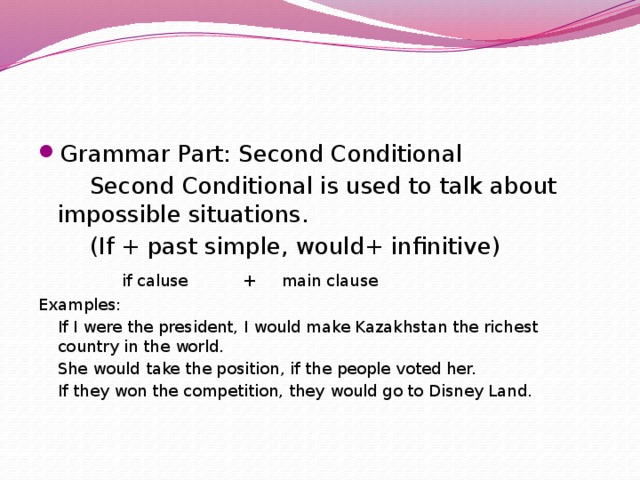?constitution [k?nst??tju???n] конститу?ция;
?conventions [ k?n?ven??n] конве?нция
? act [ ækt] ?имыл, ?рекет, акт
?affirm [??f??m] бекіту
?precedent [?pr?s?d?nt] n прецеде?нт (?стемділік)
? amend [??mend] жа?сарту,?згерту
? Charter [?t???t?r] уста?в; (docrdsument, constitution)хартия(ескі ?олжазба)
?guarantee [gær?n?ti?] n гара?нтия,кепіл
? basic [?be?s?k] adj (fundamental) негізгі
?freedom ?[fri?d?m] бостанды?
?period[ ?p??r??d] д?уір

